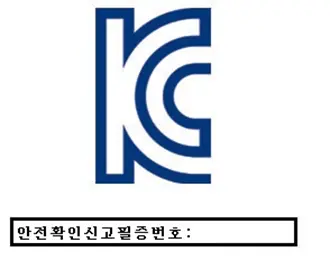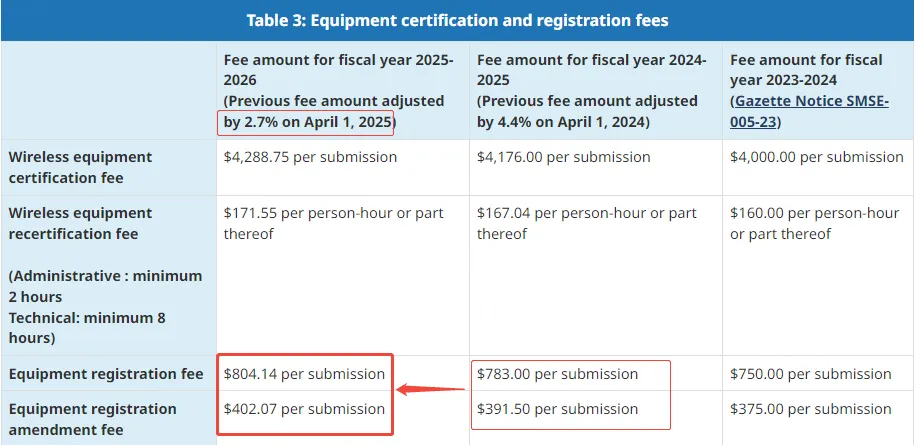
Lithium Batteries KC Certification 62133:2019 Testing
Recently, Korean authorities have released detailed implementation guidelines for the new Korean lithium battery certification standard, transitioning from the familiar KC 62133:2018 to KC 62133:2019. According to the regulations, the new KC 62133:2019 standard will officially take effect from September 6, 2019 (subject to potential delay). After this date, Korean certification bodies (KTC/KTL/KTR) will only issue kc certificates under KC 62133:2019 and will no longer accept applications for the 2015 and 2018 versions. Below are details on the differences between the old and new versions of the Korean lithium battery standards, corresponding CB standards, and issues related to certification updates and applications. (Specific implementation guidelines for KC 62133:2019 are attached at the end.)

1. Differences between New and Old Versions
1.1. What are the main differences between KC 62133:2015 and KC 62133:2019?
- Application: For the 2019 version of the KC certificate, the terminal product of the lithium battery must be confirmed before applying, a step not required for the 2015 version.
- Testing: If the terminal product of the lithium battery is a mobile phone, tablet, or laptop, the 2019 version requires the addition of the following three tests:
- Vibration test (battery pack): This test can refer to the sixth edition of the un38.3 report.
- Mechanical shock test (battery pack): This test can refer to the sixth edition of the un38.8 report.
- Overcharge test (cell): This test can refer to the ul1642 abnormal charge test.
Note: Lithium batteries used in other portable devices do not require the addition of the above three tests, similar to the previous requirements.
2. CB Standards
2.1. Should cb certificates be based on iec 62133:2012 or IEC 62133:2017?
- According to the latest notification, currently, only IEC 62133:2012 version CB certificates are accepted for KC applications; IEC 62133:2017 version is not yet accepted.
2.2. What should be noted when applying for KC 62133:2019 with the 2012 version CB certificate?
- For lithium batteries used in mobile phones, tablets, and laptops, the CB certificate must include the Korean deviation (KR_ND_IEC62133C). For lithium batteries used in other portable devices, this addition is not necessary.
- Testing standard: KC 62133:2015
- Corresponding IEC standard: IEC 62133:2012
- Testing standard: KC 62133:2019
- Corresponding IEC standard: IEC 62133:2012 + KOREA ND (i.e., 2012 version CB + Korean deviation)
Note: This Korean deviation KOREA ND applies to lithium batteries used in mobile phones, tablets, and laptops.
3. Certificate Updates
3.1. Will the 2015 or 2018 KC certificates already issued become invalid with the release of the 2019 version?
- No. Unless the certificate holder voluntarily cancels or is forced to cancel by the Korean certification body, the KC 62133:2015 and KC 62133:2018 certificates will remain valid.
3.2. Will existing 2015 or 2018 KC certificates be forcibly upgraded to the 2019 version after September 6?
- If the product remains unchanged and the original certificate information is also unchanged, there is no need to upgrade to the 2019 KC version. However, if a KC filing application is submitted, the standard must be upgraded.
3.3. Will KC certificates be 2015 or 2019 version after filing a KC application?
- Once an old version KC certificate undergoes filing, it must be upgraded to the latest standard. For lithium batteries used in mobile phones, tablets, and laptops, the old version KC certificates must undergo technical changes, including vibration testing, mechanical shock testing, and cell overcharge testing, before being upgraded to KC 62133:2019. For CB-KC conversion projects, the CB must include the Korean deviation, and the CB after filing must be used to upgrade to KC 62133:2019.
4. Certificate Application
4.1. Can I apply for the 2019 version KC certificate now even though it starts next month?
- Yes. Applications for the 2019 version of the KC certificate can already be submitted.
4.2. How long does it take to get the 2019 version KC certificate if applying now?
- If using CB conversion, the KC certificate can be obtained within two weeks after all documents are complete.
Attachment: Detailed Implementation Guidelines for KC 62133:2019
1. The new standards are: KC 62133:2019, KC 62133-2:2019.
- Due to the urgent implementation of the KC law for energy storage batteries (ESS), the implementation of KC 62133-2:2019 is postponed and expected to be delayed until the end of this year. Consequently, IEC 62133:2017 version CB certificates are still not accepted for KC conversion.
2. The KC 62133:2019 standard will be enforced from September 6, 2019.
- For ordinary batteries not used in mobile phones, tablets, and laptops, KC 62133:2019 requirements are equivalent to KC 62133:2015, which corresponds entirely to IEC 62133:2012.
- For lithium batteries used in mobile phones, tablets, and laptops, KC 62133:2019 adds three test requirements compared to KC 62133:2015:
- Two tests (vibration and mechanical shock for battery packs), which can refer to the sixth edition of UN 38.3 (test report) and are equivalent to KC 62133:2019.
- One test (overcharge test for cells), which can refer to UL 1642 (abnormal charging) and is equivalent to KC 62133:2019.
- If the manufacturer can provide the un38.3 test report for the battery and the UL 1642 certificate and test data (report) for the cell, these can replace the KC 62133:2019 test results.
- If the manufacturer cannot provide the un38.3 test report for the battery and the UL 1642 certificate and test data (report) for the cell, samples can be sent to Korea for the three tests, with a sample quantity of 6B + 5C.
- For CB conversion kc certification applications, the CB must include the Korean national deviation (KR_ND_IEC62133C).
- Old standard KC certificates do not need to be updated to the new version. The old standards will automatically upgrade to the new standards before the implementation of KC 62133-2:2019. However, for lithium batteries used in mobile phones, tablets, and laptops, UN 38.3 and UL 1642 documents or supplementary tests must be submitted for updating.
- When applying for KC certification, a declaration document stating the intended use of the battery must be provided.
3. An application is considered compliant with KC62133:2019 if it meets one of the following four conditions:
- CB includes the Korean national deviation.
- Submission of the sixth edition UN38.3 test report for the battery pack and UL1642 report for the cell.
- Submission of samples for testing in Korea.
- Submission of the manufacturer's test report (deviation test).
From now on, customers producing lithium batteries for mobile phones, tablets, and laptops requiring KC certification can comply with the new KC standard for batteries through one of the above four methods. Other portable lithium batteries will continue to follow the existing standard requirements.
As mentioned in point 1 of the "Implementation Guidelines," although the KC62133-2:2019 standard has been drafted, its implementation will be delayed due to the active promotion of energy storage battery ESS laws by the Korean government. Once there is information about the implementation of the ESS KC regulations, China JJRLAB will promptly update and assist customers in preparing samples and various application documents to meet the requirements of the new Korean lithium battery standard.
Email:hello@jjrlab.com
Write your message here and send it to us
 How Does a Product Get an Energy Star Label
How Does a Product Get an Energy Star Label
 Is ROHS part of UL the same
Is ROHS part of UL the same
 What is Protection Class EN 60529?
What is Protection Class EN 60529?
 IP69 Certified Protection
IP69 Certified Protection
 California Energy Commission Testing Lab
California Energy Commission Testing Lab
 What Does the Canadian IC Mark Mean?
What Does the Canadian IC Mark Mean?
 How Much is the Canada IC ID Certification cost?
How Much is the Canada IC ID Certification cost?
 How Much is the Canada IC ID Certification Fee?
How Much is the Canada IC ID Certification Fee?
Leave us a message
24-hour online customer service at any time to respond, so that you worry!




